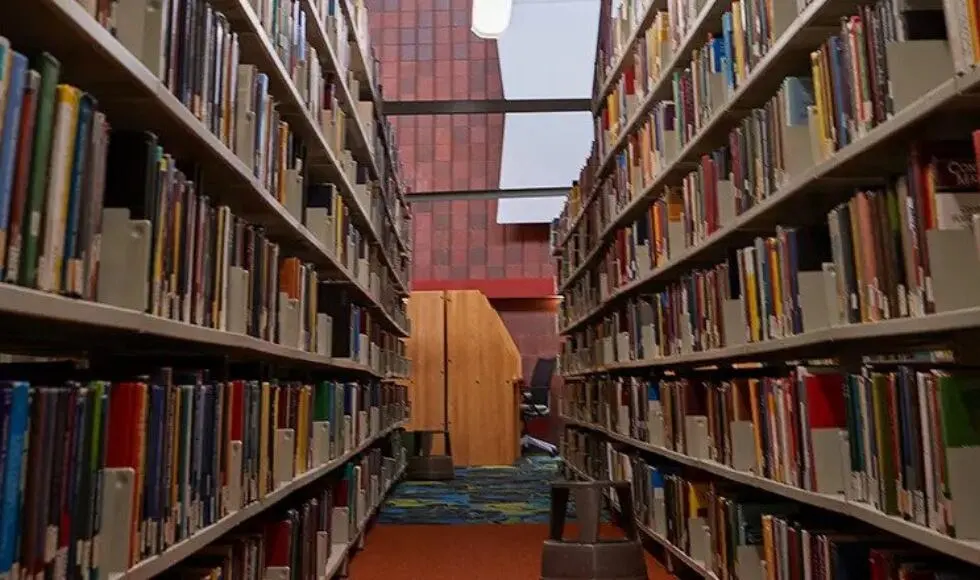Six years, 10 books: The Wilson Institute for Canadian History book series celebrates an important milestone

The Wilson Institute for Canadian History has reached an important milestone: the publication of the 10th book in the “Rethinking Canada in the World” series.
Begun in 2016, the book series publishes works that examine Canadian history from a transnational and global perspective; that is, how the history of Canada affects and is affected by global events and forces.
The series is published by McGill-Queen’s University Press, and is edited by Ian Mckay, the director of the Wilson Institute, and Sean Mills, a professor of history at the University of Toronto.
Many of the books have been the result of “Wilson Workshops,” gatherings of scholars with the specific goal of producing a book on a particular theme. Books produced through these workshops have become popular venues for young scholars to publish their works, many of which want to critically probe Canada’s complicated relationship with racialized minorities and Indigenous peoples. In fact, five of the 10 books in the series address these questions.
“The new perception of Canadian history as interlaced with global processes has been enthusiastically adopted by a younger generation of scholars,” explains McKay. “For them, a critical Canadian history, working as a discipline with such concepts as capitalism, liberalism and modernity, but also keenly alert to local tendencies and particularities, is the only kind capable of giving Canadians honest insights into contemporary issues. The Institute’s series has, over time, come to be identified with this approach.”
The Institute’s 10 books address questions around subjects as varied as Black women teachers in the Ontario school system, the 1837 Rebellion, and the World War II internment of Japanese Canadians.
- The first book in the series was a collection edited by Colin McCullough and Robert Teigrob, Canada and the United Nations: Legacies, Limits, Prospects. The book, which included a foreword by former Minister of Foreign Affairs Lloyd Axworthy, raised questions about the “self-congratulatory” tendency within Canada to see the country as the world’s premier peacekeeper.
- The next book, published in 2017, was the first result of a “Wilson Workshop. The book, Undiplomatic History: The New Study of Canada and the World, was edited by Wilson Fellows Asa McKercher and Philip Van Huizen, charted how the study of Canada and the world had been revitalized through new lenses of research and analysis, including race, gender, political economy, identity, religion, and the environment.
- With Revolutions Across Borders: Jacksonian America and the Canadian Rebellion (2019), edited by Maxime Dagenais and Wilson Fellow Julien Mauduit, the Institute, working in collaboration with scholars at the McNeil Center for Early American Studies at the University of Pittsburgh, published a major re-examination of the 1837 Rebellion in Canada as a continent-wide struggle over democracy.
- Left Transnationalism: The Communist International and the National, Colonial and Racial Questions (2020), edited by Oleksa Drachewych and Ian McKay, asked whether the Communist International changed transnational discourses around race, nation and colonialism, making a difference to the world. The collection also emphasized the work of scholars in the Global South.
- In Landscapes of Injustice: A New Perspective on the Internment and Dispossession of Japanese Canadians (2020), editor Jordan Stanger-Ross and other contributors looked intensively at one of the most challenging moments in Canadian history: the displacement of thousands of Japanese Canadians in the 1940s. A result of a major research partnership involving dozens of scholars across the country, the book also includes descendants of the dispossessed who were keen to establish a more comprehensive picture of the period.
- Canada’s Other Red Scare: Indigenous Protest and Colonial Encounters during the Global Sixties, by Scott Rutherford, was the Institute’s publication of a full monograph, rather than a collection of essays. The book was recognized by the Ontario Historical Society in 2020-2021 as “the best book on Ontario’s social, economic, political or cultural history published in the last three years,” and was awarded the J.J. Talman Award.
- Will Langford’s The Global Politics of Poverty in Canada: Development Programs and Democracy, 1964-1979 (2020) linked local efforts to reduce poverty at home and abroad to the transnational pursuit of capitalist approaches to the elimination of poverty.
- Schooling the System: A History of Black Women Teachers (2021) by Funké Aladejebi, looed at the ways in which Black women worked as “cultural mediators” within the Ontario school system, creating innovative teaching methods and helping to mitigate racism within the educational system.
- Constant Struggle: Histories of Canadian Democratization (2021), edited by Jennifer Tunnicliffe and Julien Mauduit, is the first book-length look at the history of democracy in Canada from the 1830s to the 1990s, when “democracy” has often been a controversial idea, opposed by many of the country’s foundational leaders.
- The 10th book in the series, Daniel Meister’s The Racial Mosaic: A Pre-History of Canadian Multiculturalism (2021/early 2022), looks closely at the three “founding fathers” of Canadian multiculturalism: Watson Kirkconnell, Robert England and John Murray Gibbon, who set the initial foundations for later government policies that attempted the answer the question, “What does it mean to be Canadian?”
While efforts like these to critically rethink the study of history have met with polemical opposition at times, says McKay, the aim is not to be willfully negative, but to look at history honestly and with subtlety.
“The Institute has sought to show that it is possible to combine the critique of central Canadian patterns in history with an intelligent awareness of the country’s achievement and limitations,” he says. “Making this new kind of Canadian history one that speaks to the majority of Canadians will be a central task of the 2020s.”
Humanities, Wilson Institute for Canadian History